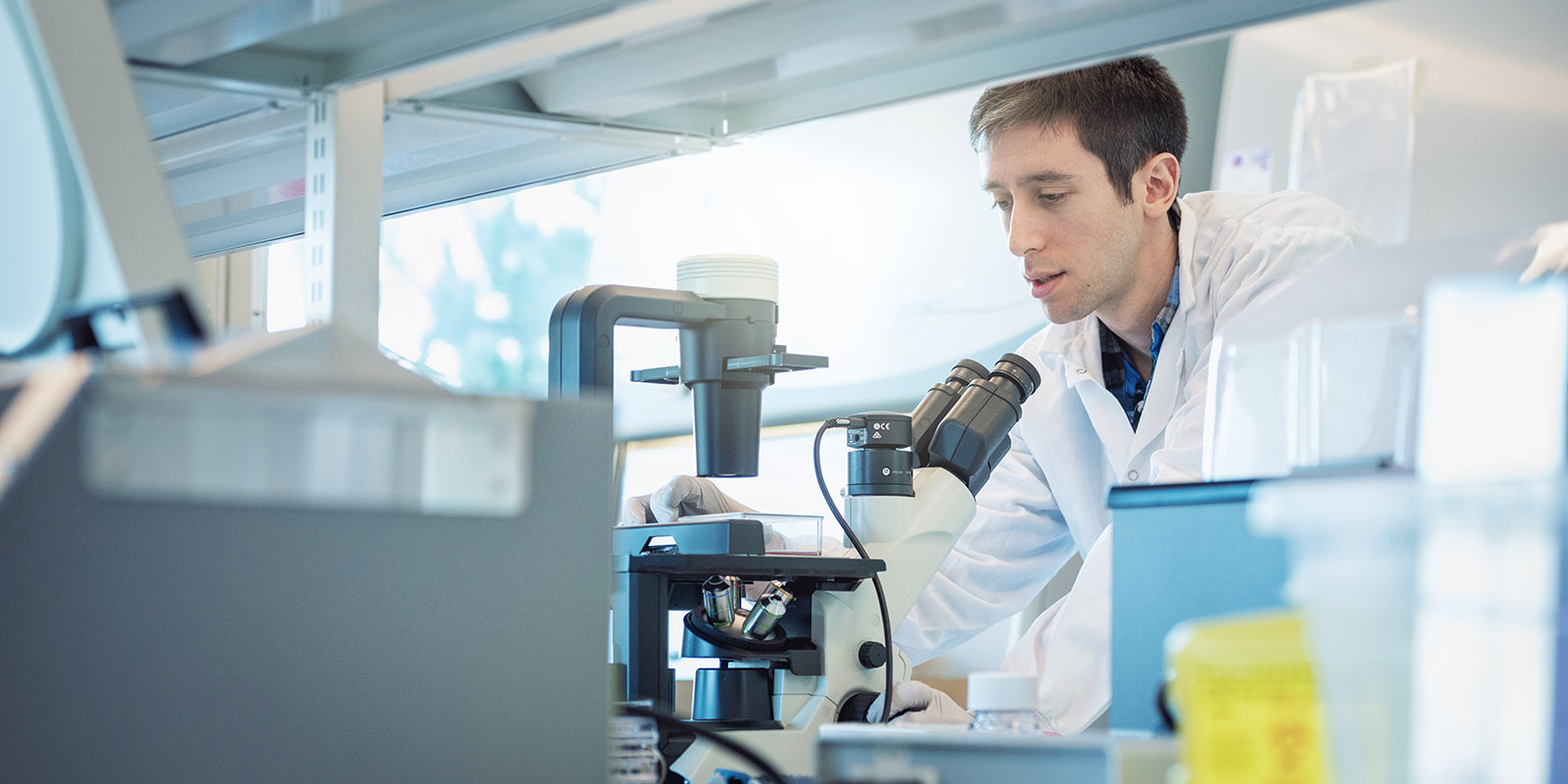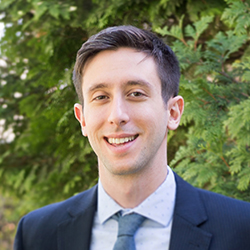
Breakthrough research led by postdoctoral fellow Dr. Yale Michaels (above) reveals how to produce cancer fighting immune cells faster and more efficiently.
Great gains have been made in the field of stem cell research, especially in the last five years with immune cells emerging as a promising treatment for cancer. Despite the progress, the bottleneck of costly and laborious means of production for personalized medicine has remained a barrier. Now, researchers at the Michael Smith Laboratories and the School of Biomedical Engineering have published a breakthrough paper in Science Advances that just might change the game.
The research team, based out of the Zandstra Laboratory, has refined a process to produce cancer fighting immune cells from stem cells faster and more efficiently than previously known methods. With a patent application in the works, this exciting finding could help transform the field of stem cell medicine from an expensive, niche endeavour to something easily scalable and broadly applicable in the clinic.
CAR T therapy, a well-known and successful cancer treatment, involves obtaining immune cells from a patient and genetically modifying them to fight against the patient’s cancer. Although this type of therapy has an efficacy rate of close to 50 per cent for some cancers, a new batch of medicine needs to be created for each treatment, costing roughly half a million dollars each round.
“Because the main cost associated with these treatments is the fact that they’re made individually, a more cost-effective strategy could be figuring out how to manufacture those immune cells in the lab using stem cells, instead of taking them directly from a patient,” explains Dr. Yale Michaels, a UBC postdoctoral fellow and first author of the study.

Dr. Yale Michaels
Building on a large body of previous work in the area, Dr. Michaels and team have discovered an efficient way to do exactly that.
“We’ve figured out the minimal necessary steps to efficiently guide pluripotent stem cells to develop in the dish into immune cells, in particular, T cells,” he adds.
T cells are important infection fighters in our body that originate from pluripotent stem cells (PSCs), and until now, their developmental pipeline has been difficult to replicate effectively in the lab. Dr. Michaels and his team discovered that by providing two proteins to the cells during a key window of development improved the efficiency of immune cell production by eighty times.
Their novel method is the fastest known means of producing immune cells in the lab and could mean that hundreds of doses of medicine could be derived from a single cell.
“One of the next steps we’re working on is to scale this up and make it work more efficiently so that we can make enough cells to treat patients. I hope that this publication and the ongoing work in the lab will contribute to future clinical pipelines,” says Dr. Michaels.
The improvement of this production pipeline is one step towards solving a variety of human health challenges from cancer to other immune diseases. The success of the research project is the culmination of effort from a diverse team of people within the Zandstra lab and beyond, including engineers, molecular biologists, computer scientist and more.
“One of the next steps we’re working on is to scale this up and make it work more efficiently so that we can make enough cells to treat patients. I hope this ongoing work will contribute to future clinical pipelines.”
Dr. Yale Michaels
“It’s been quite rewarding seeing all the fruits of those different knowledge bases coming together,” Dr. Michaels reflects. “It’s the collective work of hundreds or thousands of people, each making important contributions that collectively enable this to succeed. People have made tremendous progress over the last 20 years; this breakthrough is an exciting continuum.”
Seeing the potential for findings like these to work towards treating human problems like cancer, immune diseases and transplant rejection is hugely motivating for Dr. Michaels.
“It’s fascinating to think that one single cell can produce all the cells, with their diverse functions, required to make up an adult human body. And how that happens is an interesting fundamental question about what makes us. The more we learn about how this process unfolds, the better we are able to apply it to treating human disease.”
A version of this story originally appeared on the Michael Smith Laboratories website.